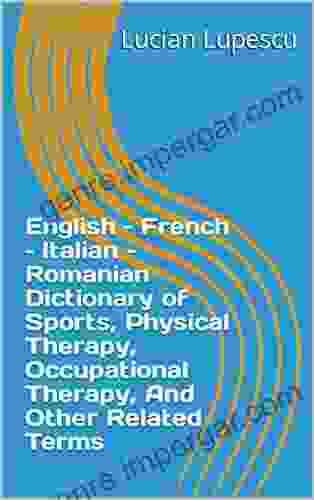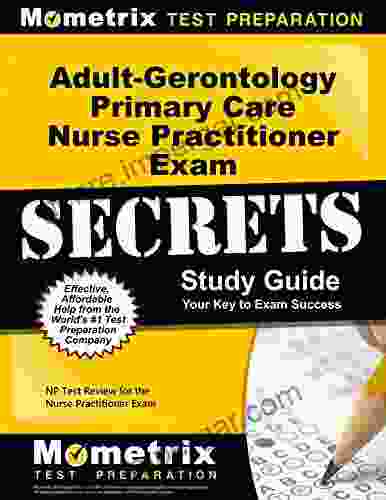The Role of Nursing and Nursing Education in Assuring Quality Health Care in Low- and Middle-Income Countries


Nurses play a vital role in providing quality health care, especially in low- and middle-income countries (LMICs) where resources are often scarce and the population's health needs are significant. Nursing education is essential for preparing nurses to meet the challenges of providing care in these settings.
5 out of 5
| Language | : | English |
| File size | : | 30409 KB |
| Screen Reader | : | Supported |
| Print length | : | 152 pages |
| Lending | : | Enabled |
This article will explore the role of nursing and nursing education in assuring quality health care in LMICs. We will discuss the challenges that nurses face in these settings, the importance of nursing education, and the role that nurses can play in improving health outcomes.
Challenges Facing Nurses in LMICs
Nurses in LMICs face a number of challenges, including:
- Lack of resources: LMICs often have limited resources, which can make it difficult for nurses to provide quality care. They may not have access to essential medical equipment or supplies, and they may be working in overcrowded and understaffed environments.
- Limited training: Nurses in LMICs may not have received the same level of training as nurses in developed countries. This can make it difficult for them to provide safe and effective care, especially in complex or critical situations.
- Cultural barriers: Nurses may face cultural barriers that can make it difficult for them to communicate with patients and their families. These barriers can include differences in language, religion, and values.
- Violence and discrimination: Nurses in LMICs may be at risk of violence and discrimination. They may be targeted by patients or their families, or they may be discriminated against because of their gender or ethnicity.
The Importance of Nursing Education
Nursing education is essential for preparing nurses to meet the challenges of providing care in LMICs. Nursing education can provide nurses with the knowledge, skills, and attitudes they need to provide safe and effective care, even in resource-limited settings.
Nursing education can help nurses to:
- Develop the critical thinking skills needed to assess patients' needs and make decisions about their care.
- Learn how to use essential medical equipment and supplies.
- Communicate effectively with patients and their families, even in the face of cultural barriers.
- Provide culturally competent care that is respectful of patients' beliefs and values.
- Advocate for patients' rights and promote their health and well-being.
The Role of Nurses in Improving Health Outcomes
Nurses play a vital role in improving health outcomes in LMICs. Nurses can provide preventive care, such as vaccinations and health education, which can help to prevent diseases and improve overall health. Nurses can also provide acute care, such as treating wounds and administering medications, which can help to save lives and improve patient outcomes.
In addition to providing direct care, nurses can also play a role in health systems strengthening. Nurses can help to develop and implement health policies and programs, and they can work to improve the quality of care in health facilities. Nurses can also be advocates for patients and their families, and they can help to ensure that patients have access to the care they need.
Nurses and nursing education are essential for assuring quality health care in LMICs. Nursing education can provide nurses with the knowledge, skills, and attitudes they need to provide safe and effective care, even in resource-limited settings. Nurses play a vital role in improving health outcomes by providing preventive care, acute care, and health systems strengthening.
Investing in nursing and nursing education is an investment in the health of the population. By providing nurses with the education and resources they need, we can help to improve health outcomes and save lives.
5 out of 5
| Language | : | English |
| File size | : | 30409 KB |
| Screen Reader | : | Supported |
| Print length | : | 152 pages |
| Lending | : | Enabled |
Do you want to contribute by writing guest posts on this blog?
Please contact us and send us a resume of previous articles that you have written.
 Book
Book Novel
Novel Page
Page Chapter
Chapter Text
Text Story
Story Genre
Genre Reader
Reader Library
Library Paperback
Paperback E-book
E-book Magazine
Magazine Newspaper
Newspaper Paragraph
Paragraph Sentence
Sentence Bookmark
Bookmark Shelf
Shelf Glossary
Glossary Bibliography
Bibliography Foreword
Foreword Preface
Preface Synopsis
Synopsis Annotation
Annotation Footnote
Footnote Manuscript
Manuscript Scroll
Scroll Codex
Codex Tome
Tome Bestseller
Bestseller Classics
Classics Library card
Library card Narrative
Narrative Biography
Biography Autobiography
Autobiography Memoir
Memoir Reference
Reference Encyclopedia
Encyclopedia Linda M Collins
Linda M Collins Lg Newton
Lg Newton Lester Tobias
Lester Tobias Lucy Bellamy
Lucy Bellamy Liana De Girolami Cheney
Liana De Girolami Cheney M C Bishop
M C Bishop Liz Dean
Liz Dean Michael W Otto
Michael W Otto Lori Gottlieb
Lori Gottlieb Samuel P Hays
Samuel P Hays Lisa Rusczyk
Lisa Rusczyk Louisa Cook Moats
Louisa Cook Moats Lynda V Mapes
Lynda V Mapes Nima Rezaei
Nima Rezaei Matthew Rozell
Matthew Rozell M J Trow
M J Trow Lois Baxter
Lois Baxter Les Neufeld
Les Neufeld Lou Adler
Lou Adler Lisa Hobman
Lisa Hobman
Light bulbAdvertise smarter! Our strategic ad space ensures maximum exposure. Reserve your spot today!

 Albert ReedUnveiling the English French Italian Romanian Dictionary of Sports Physical...
Albert ReedUnveiling the English French Italian Romanian Dictionary of Sports Physical... Oscar WildeFollow ·6.2k
Oscar WildeFollow ·6.2k Roy BellFollow ·3.5k
Roy BellFollow ·3.5k Diego BlairFollow ·3.6k
Diego BlairFollow ·3.6k Nikolai GogolFollow ·6.1k
Nikolai GogolFollow ·6.1k Stanley BellFollow ·6.6k
Stanley BellFollow ·6.6k Carlos DrummondFollow ·14.2k
Carlos DrummondFollow ·14.2k Braeden HayesFollow ·11.8k
Braeden HayesFollow ·11.8k Amir SimmonsFollow ·10k
Amir SimmonsFollow ·10k

 J.D. Salinger
J.D. SalingerThe Montefeltro Conspiracy Renaissance Mystery Decoded
In the heart of the Italian Renaissance, a...

 Ryūnosuke Akutagawa
Ryūnosuke AkutagawaElan Vital Magazine: A Literary Sanctuary for the Mind...
In this fast-paced digital age, where...

 Derek Bell
Derek BellCode Biology: Unveiling the New Science of Life
Every living organism, from...

 Rick Nelson
Rick NelsonUnleash the Darkness: Dive into the World of Villain Arts...
Prepare to be...

 Tony Carter
Tony CarterEmbark on a Scientific Odyssey: Unveil the Secrets of...
In an era where environmental concerns...
5 out of 5
| Language | : | English |
| File size | : | 30409 KB |
| Screen Reader | : | Supported |
| Print length | : | 152 pages |
| Lending | : | Enabled |












